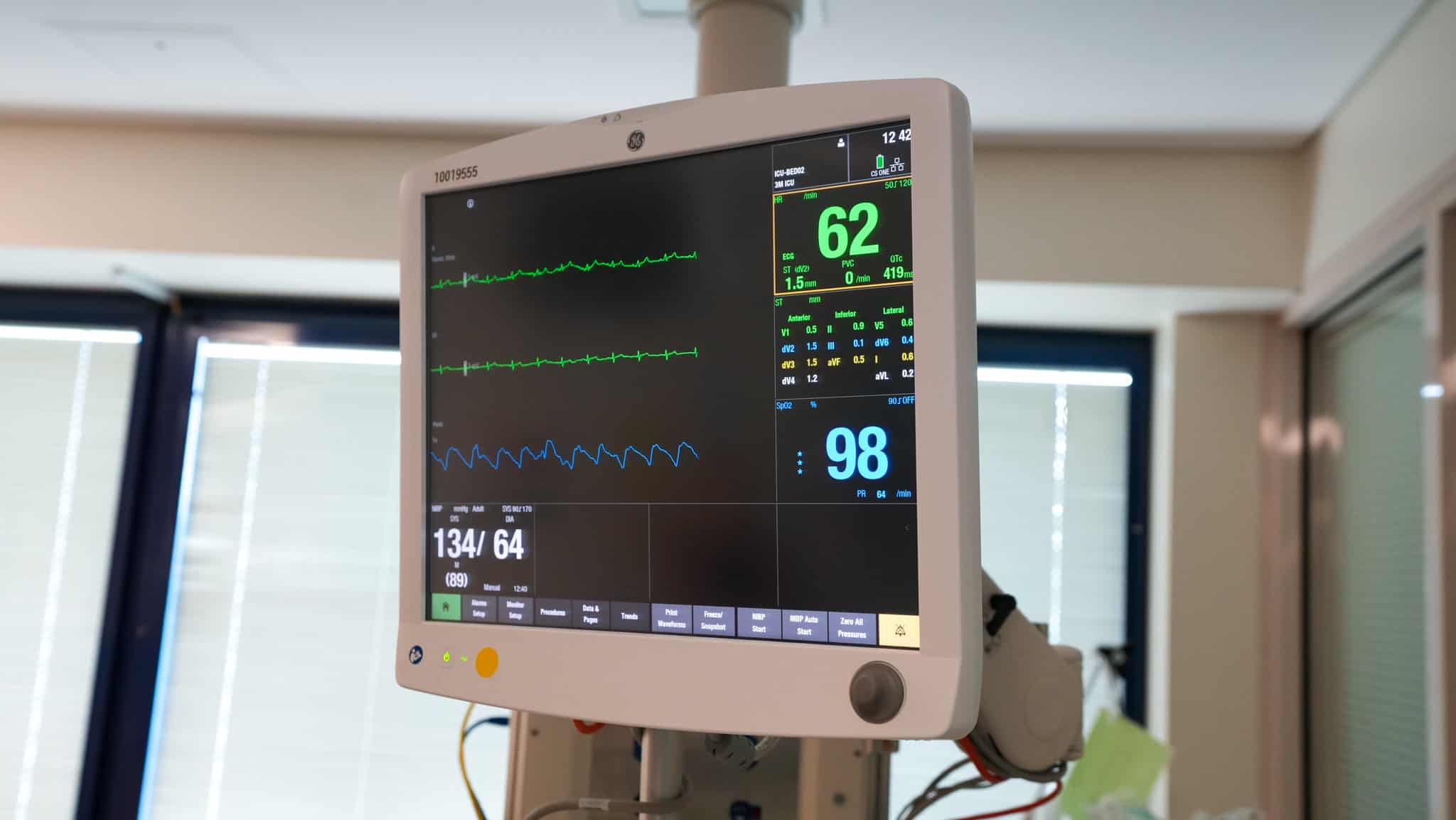
A research initiative aiming to leverage Artificial Intelligence’s capabilities to detect early signs of patient deterioration, especially in those undergoing mechanical ventilation, is receiving significant backing from the Wesley Research Institute.
At the helm of this innovative project are Dr James Winearls and Professor John Fraser, who are working with leaders in Machine Learning (ML) and AI to create an early warning system using AI and ML assessment of every second of data from life support machines.

“Recently James himself, who is the co-author of this grant, ended up in his own intensive care,” Professor Fraser, Director of the St Andrew’s War Memorial Hospital Intensive Care Unit and the Critical Care Research Group.
““His expertise in ICU is one thing – but to be a patient gives him an entirely different view. The continuous noise in the Intensive Care Unit; all those machines continuously giving us data but we only really use a fraction of it. The senior professors and doctors will go home at night – sometimes! The machines are there 24/7 – they don’t have days off and they don’t get sick. We need to harness the power of this data”, Professor Fraser, Director of the St Andrew’s War Memorial Hospital Intensive Care Unit and the Critical Care Research Group.
“So, the whole purpose of this project is to reduce risk, create a 24/7 state of the art early warning system that can pick up problems before they develop – and in doing so improve the care and recovery of our patients.”
Highlighting the scale of the challenge, Professor Fraser highlighted the overwhelming number of alarms that staff and patients face.
“In one month of analysis, we saw 600,000 alarms – that’s 600,000, beeps and bongs! Roughly an alarm goes off every eight seconds. Imagine you’re at your sickest point. And every second, you’re woken up by something. With this grant, we reckon we can use the already available data – smarter, faster, better. Less bongs means the nurse can care for your loved one even better and we can avoid physiological car crashes.”
The relentless noise not only adds stress to an already tense environment but also increases the risk of overlooking genuine medical alerts.
Professor Fraser and Dr Winearls’ project aims to use AI to filter through the noise, identifying significant changes in patient conditions that require immediate attention.
“AI has the remarkable ability to identify slight changes,” said Professor Fraser.
“There’s a huge amount of data coming at us as doctors, allied health and nursing stuff. But the question is, how well are we using it? Computers can look at subtle, subtle changes and see them much earlier than we can.
“So, for example, on the ventilator, the life support machine, we have a breathing tube down our throat, and it’s just a pipe and air goes in and air comes out. But bit by bit, if you’re producing sputum, it can start to gather in the breathing tube. Now there are subtle signs that the flow has changed in that breathing tube. But unless you recognise this pattern, you might miss the early signs.
“We want to actually teach the computer to learn tiny, very early changes, because if we don’t spot that, until it’s completely blocked, a patient can die.
“So, this is an early warning system, using data using waveforms that’s already there. And all we’re doing is teaching the existing computers and the existing software to notice a pattern way before our human eye can. And that makes your intensive care experience safer.”
Professor Fraser said he and Dr Winearls were undertaking ‘real-life research’ that would have direct impact on patients.
“We don’t want this to be a manuscript that we get published and someone says we’re clever,” he said.
Tomorrow’s treatment grows from today’s research. So that’s what we aim to do. Translate, translate, translate.
Professor John Fraser
“We want this in two, three- or five-years’ time to be sitting here at St Andrew’s or Wesley Hospital and a patient surviving because of what your donation and what your grant has done”.